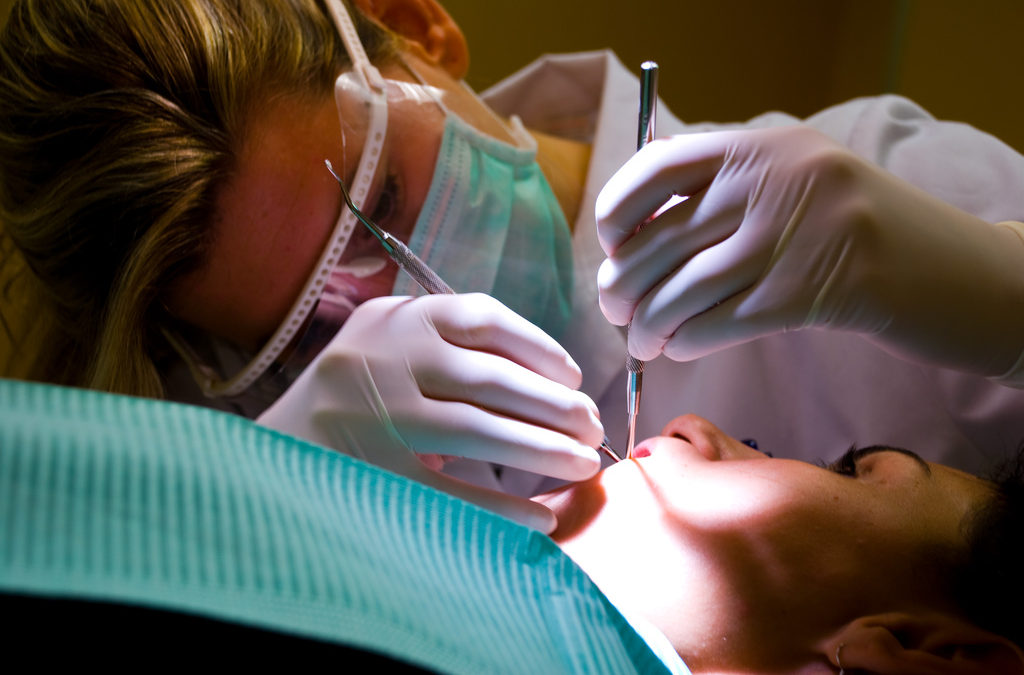You’ve probably experienced some sort of tooth pain in your lifetime. Anything from minor temporary pain to urgent dental emergencies, can be a real pain in the neck — or mouth.
But when do you need to go to the dentist about your tooth pain?
On average, most patients can get away with seeing a dentist just once or twice a year. People with a high risk of dental disease might need to visit every three or four months, or more.
Generally, mild sensitivity or discomfort in the mouth, teeth, or gums that doesn’t last longer than a day or two are probably not emergencies, and you can usually wait to address it until your yearly or bi-annual appointment with your dentist.
Toothache
If you’re experiencing mild toothache or tooth pain, it’s likely that you’re not in an emergency situation. A toothache could simply signify a cavity. In this case it’s important to address this issue before it progresses into a worse problem, but it’s not an emergency. To help ease the pain of toothaches try a cold compress, over-the-counter pain medicine, pain-relieving gels for the mouth, or ice.
Tooth Sensitivity
Tooth sensitivity to hot or cold foods that doesn’t last longer than a few seconds could be caused by a small area of decay in a tooth, a loose filling or an exposed root surface resulting from gum recession. It could also be caused by aggressive brushing. While not urgent, you should mention your sensitivity to your dentist during your next appointment. In the meantime, avoid hot, cold, and acidic foods. Purchase toothpaste made for sensitive teeth, and go easy on the brushing. Discontinue use of any teeth-whitening products until you have a chance to consult with your dentist.
Swollen or Bleeding Gums
Swelling and bleeding of the gums could indicate gingivitis, a dental abscess or infection or — in extreme cases — gum disease, so be sure to bring up these issues with your dentist at your next appointment.
In some cases, you could be the cause. If there’s plaque build-up on the teeth, the gums can swell and bleed. Brush at least twice a day and floss daily. A toothbrush with hard bristles can also be the problem, so purchase a soft-bristle toothbrush.
If you make these changes and the swelling and bleeding persists, it’s time to see the dentist to find out the true culprit.
Chipped or Cracked Tooth
A knocked-out, knocked-loose, chipped or cracked tooth are considered dental emergencies that require an immediate trip to the dentist. Any of these cases could occur from a hard fall or some kind of trauma or blow to the mouth or head. Chewing on a hard piece of candy or food can also cause a tooth to chip or break.
If left untreated, a broken tooth can become infected. In some instances, the infection can spread to the head and neck and cause serious health problems.
If you knocked your tooth out completely, salvage the tooth if you can and handle it carefully, keeping it clean and securing it in a bag or small container. If it’s dirty, rinse it with milk instead of water. Don’t allow it to dry, and place it back in the socket as soon as possible. See your dentist immediately.
Sometimes the tooth is lost or broken into pieces, in which case an immediate visit to the dentist is recommended — ideally within half an hour.
Severe and Lasting Pain
Acute and lasting pain (longer than a day or two) should also be addressed by a dentist as soon as possible, as it could signify that the pulp tissue inside a tooth is acutely infected, and the decay is coming very close to or entering the nerve.
Similar to a chipped or cracked tooth, your dentist may use composite bonding, a veneer, a crown, a root canal or a dental implant to repair a damaged tooth. You may also need antibiotics to stop the spread of the infection.
Injuries
Cuts or lacerations to the cheeks, gum or tongue should also be addressed by a dentist or doctor, as they could be a result of direct trauma in the mouth. If left untreated, one of these kinds of injuries can result in an infection that spreads through the blood to other areas of the body. Mouth injuries may need stitches or antibiotics.
Preventative Care and Treatments for Dental Health
Although accidents like chipping or knocking out a tooth can’t always be prevented, good dental care is the best way to prevent most non-urgent dental issues.
Brush your teeth at least twice a day with a fluoride toothpaste. See a dentist at least once a year for a cleaning and general check-up. Having an established relationship with a dentist before an urgent dental emergency occurs means you are more likely to get quick and proper treatment when needed.
– – – – – – – – – –
At Beautiful Smiles Family Dental Center in Etters, Pennsylvania, Dr. Graver and Dr. Koop offer many techniques to keep your smile beautiful! We are always concerned about your comfort. Please call us if you have any questions about how our services may benefit you or someone you know.
Image credit:



Recent Comments